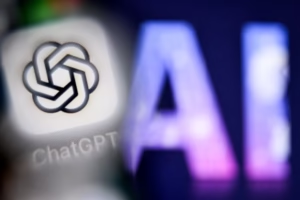Wall Street has questioned whether ChatGPT poses a serious threat to Google’s search business since it first appeared on the scene two and a half years ago. And a Melius Research analyst is delving a little deeper into that subject now that Alphabet Inc.’s stock is 25% below its peak.
On Monday, Ben Reitzes of Melius questioned if Google will become the next Kodak.
“We have focused on ‘the simple’ with Alphabet since our launch in mid-2023 – and that view is predicated on the view that Google is losing the next generation of ‘searchers’ to ChatGPT,” he said in a client note.
While Kodak’s management once insisted that the company could keep up with the proliferation of digital cameras—both through the continued demand for traditional film and the need for digital camera users to print an increasing number of their photos—Reitzes pointed out that Alphabet (GOOG) (GOOGL) has had the “occasional good conference call” in recent years. Kodak even has its own digital cameras.
“Metaphorically speaking, OpenAI’s home page is arguably this generation’s ‘digital camera,'” he said. “The loyal ad buyers for Google ads are arguably the loyal ‘photofinishers’ who may prove to be fickle if the ads see diminishing returns.”
With an anticipated $77 billion in free cash flow this year, Alphabet has the resources to innovate and maintain its market share. According to Reitzes, the firm is faced with a dilemma because Wall Street appears to be hoping that it will begin to reduce its capital-expenditure plans, but he doesn’t believe Alphabet has the luxury.
“There’s a growing consensus that Microsoft’s stock has bottomed of late since the company seems to be down-ticking on capex, which would bolster its free cash flow,” he stated. “However, we don’t think Alphabet can afford to give that gift to shareholders.”
Furthermore, Alphabet is now experiencing a branding issue. Google’s Gemini artificial intelligence product isn’t a verb. According to Reitzes, younger users of ChatGPT have “verb” status and will utter things like “ChatGPT’d” their school papers.
Reitzes questioned whether Google could extract that much money via Gemini subscriptions, even though OpenAI might earn $12.7 billion this year from subscriptions. “Advertisers would have to respect its youthful user base,” Reitzes said, referring to the fact that OpenAI does not currently display commercials. “How could at least 20% of the world’s search ad budget (about $40B) not go to OpenAI when they eventually figure this out?”
He went on to say that the Kodak example is a warning from the standpoint of stocks. Over a three-year period, Kodak’s stock’s projected price-to-earnings multiple dropped from 20x to 7x. Despite having a market valuation of only roughly $500 million, Kodak was formerly part of the Dow Jones Industrial Average.
In light of this, Reitzes has rated Alphabet’s shares as a hold. He conceded that if Alphabet’s cloud computing division grows more quickly, it may be able to refute his thesis.
In his study, he stated that “the larger this business gets, the more it can offset challenges to search.”





